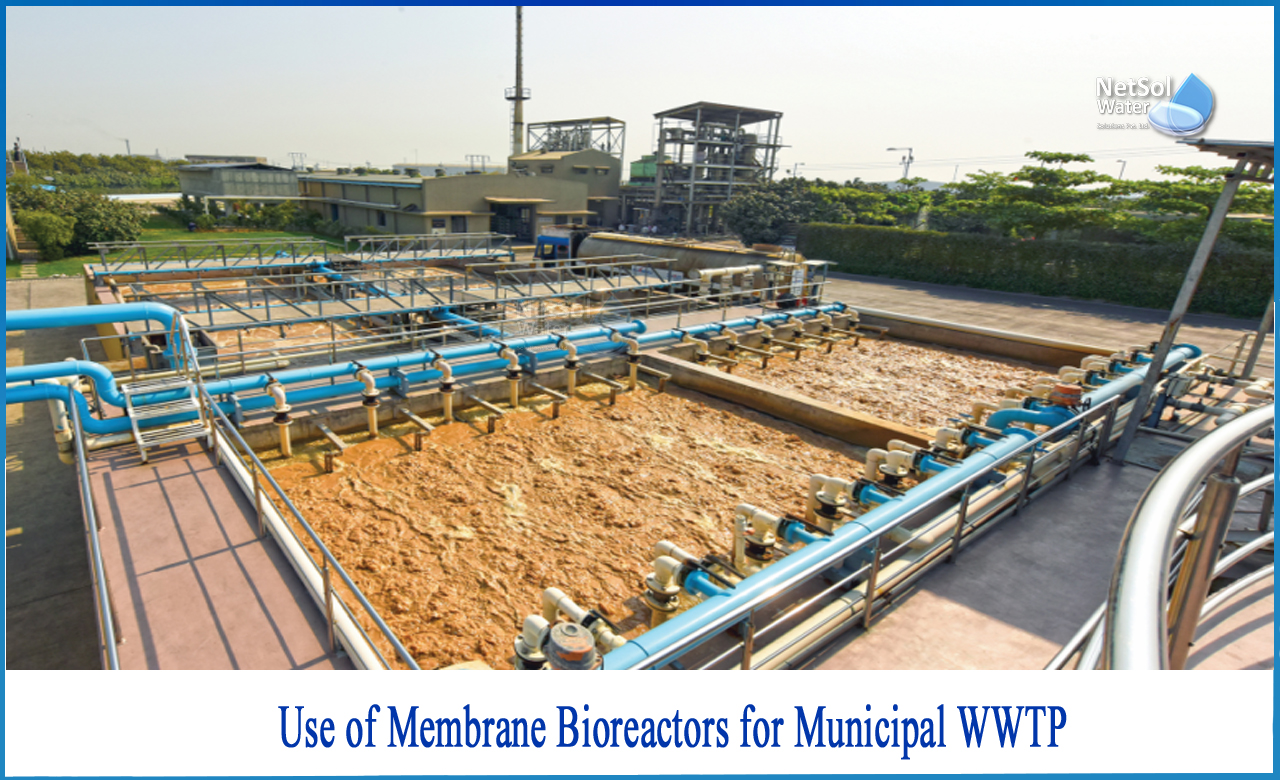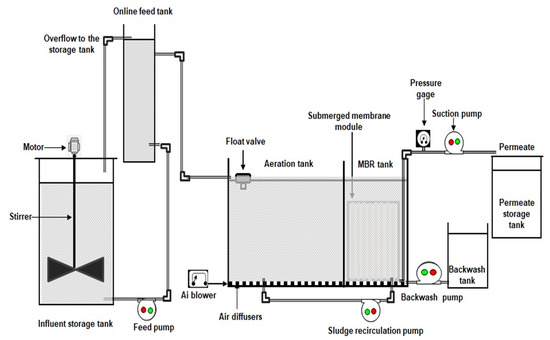Membrane Bioreactor Systems: A Key Technology for Water Reuse and Recycling
Membrane Bioreactor Systems: A Key Technology for Water Reuse and Recycling
Blog Article
The Advantages of Membrane Bioreactors in Lasting Wastewater Monitoring
Membrane layer bioreactors (MBRs) stand for a crucial innovation in sustainable wastewater management, properly combining biological therapy with innovative membrane layer filtering technology. As the need for sustainable options magnifies, exploring the complex benefits of MBRs might reveal unexpected effects for the future of wastewater treatment systems.
Overview of Membrane Bioreactors
Membrane layer bioreactors (MBRs) represent a substantial improvement in wastewater treatment innovation, incorporating organic deterioration with membrane layer filtering to boost the performance of the treatment procedure. This cutting-edge system integrates the advantages of standard activated sludge procedures with membrane layer innovation, enabling boosted solid-liquid separation. MBRs use semi-permeable membrane layers to separate cured water from biomass, resulting in high-quality effluent that can be reused or securely discharged right into the environment.
The operational layout of MBRs generally involves a bioreactor where microbes break down raw material, adhered to by a membrane system that filters the blended liquor. This configuration not just lessens the impact of the therapy center but likewise permits for greater biomass concentrations and decreased hydraulic retention times. Additionally, MBRs can dealing with a broader range of impurities, consisting of virus and nutrients, making them suitable for various applications, from municipal wastewater therapy to commercial effluent processing.
The assimilation of MBRs into wastewater administration systems is a measure of a growing pattern towards lasting and effective practices in ecological engineering. Their capacity to generate premium effluent while minimizing space requirements positions MBR innovation as a principal in contemporary wastewater therapy services.
Enhanced Effluent Quality

The membrane layer filtering process works as a physical barrier, enabling the retention of bacteria and particle matter, which adds to a clearer and cleaner effluent (Membrane Bioreactor). MBRs run at greater biomass focus than standard activated sludge systems, promoting much more reliable biodegradation of toxins. This brings about a reduction in biochemical oxygen need (BOD) and complete suspended solids (TSS) levels in the final effluent
Furthermore, MBRs demonstrate exceptional performance in treating tough wastewater structures, such as commercial effluents and wastewater with high nutrient lots. As a result, the effluent generated is usually of higher top quality, allowing for more adaptable disposal choices and lowered environmental impact. Inevitably, the boosted effluent quality accomplished via MBR innovation highlights its vital duty ahead of time sustainable wastewater monitoring methods.
Water Reuse Opportunities
The premium effluent generated by membrane bioreactors (MBRs) opens up considerable possibilities for water reuse in different applications. MBRs efficiently eliminate impurities, consisting of pathogens, put on hold solids, and organic matter, causing cured water that fulfills or surpasses regulatory requirements for reuse. This high quality enables the execution of water reusing initiatives throughout varied fields.
One prominent application is in agriculture, where dealt with wastewater can be used for watering, promoting lasting farming techniques while conserving fresh water sources. Furthermore, MBR-treated effluent can be used for commercial procedures such as air conditioning, cleansing, and as a procedure water source, dramatically reducing the demand for drinkable water in these operations.
In city environments, MBRs facilitate using reclaimed water for landscape watering, toilet flushing, and other non-potable uses, adding to the overall resilience of supply of water systems. Furthermore, the combination of MBR technology in look at more info decentralized systems aids in taking care of local water needs, particularly in water-scarce regions.
Decreased Environmental Influence
Just how can the adoption of membrane layer bioreactors (MBRs) add to a minimized ecological effect in wastewater monitoring? MBRs considerably boost the therapy effectiveness of wastewater while decreasing ecological disruptions. Membrane Bioreactor.
Furthermore, MBRs run at lower hydraulic retention times contrasted to conventional systems, leading to smaller sized treatment plant impacts. This small layout reduces land use, consequently protecting natural habitats and biodiversity. The procedure additionally generates less sludge than traditional approaches, mitigating disposal difficulties and reducing greenhouse gas exhausts associated with sludge monitoring.
Furthermore, MBRs assist in the recuperation of valuable resources, such as water and nutrients, contributing to a round economy. By allowing water reuse for watering her response or commercial procedures, MBRs help ease freshwater deficiency, thus promoting sustainable water make use of techniques. Inevitably, the adoption of MBR technology stands for a considerable stride in the direction of lessening the environmental influence of wastewater administration systems.
Economic Advantages of MBRs

In addition, MBRs facilitate the production of premium effluent, which can be reused for numerous applications, such as agricultural watering and industrial processes - Membrane Bioreactor. This reuse capability can significantly decrease water purchase costs, providing a financial motivation for markets dealing with strict water policies
The small style of MBR systems likewise causes minimized land requirements, which is particularly important in metropolitan areas where actual estate is costly. By reducing room, sectors and towns can minimize land imp source procurement and maintenance expenditures.
Additionally, MBRs frequently need much less regular maintenance and have a longer life-span than typical systems, even more contributing to cost savings. In summary, the financial benefits of MBRs-- ranging from decreased operational expenses to land cost savings and effluent reuse-- make them an engaging option for lasting wastewater administration, providing both prompt and long-lasting economic benefits.
Verdict
Furthermore, MBRs contribute to minimized environmental effects via portable layouts and reduced sludge generation. Economic advantages additionally enhance their practicality, making MBRs an appealing service for dealing with the difficulties of wastewater treatment and advertising lasting source monitoring.
Membrane layer bioreactors (MBRs) represent a critical development in lasting wastewater monitoring, properly combining biological treatment with sophisticated membrane layer purification innovation.Membrane bioreactors (MBRs) represent a significant advancement in wastewater treatment innovation, incorporating organic destruction with membrane filtering to enhance the efficiency of the treatment procedure.Achieving enhanced effluent top quality is one of the most considerable advantages of making use of membrane layer bioreactors (MBRs) in wastewater therapy.In addition, MBRs demonstrate excellent efficiency in treating tough wastewater structures, such as commercial effluents and wastewater with high nutrient tons.Integrating membrane layer bioreactors (MBRs) into wastewater monitoring not only decreases environmental influence however also provides significant financial benefits.
Report this page